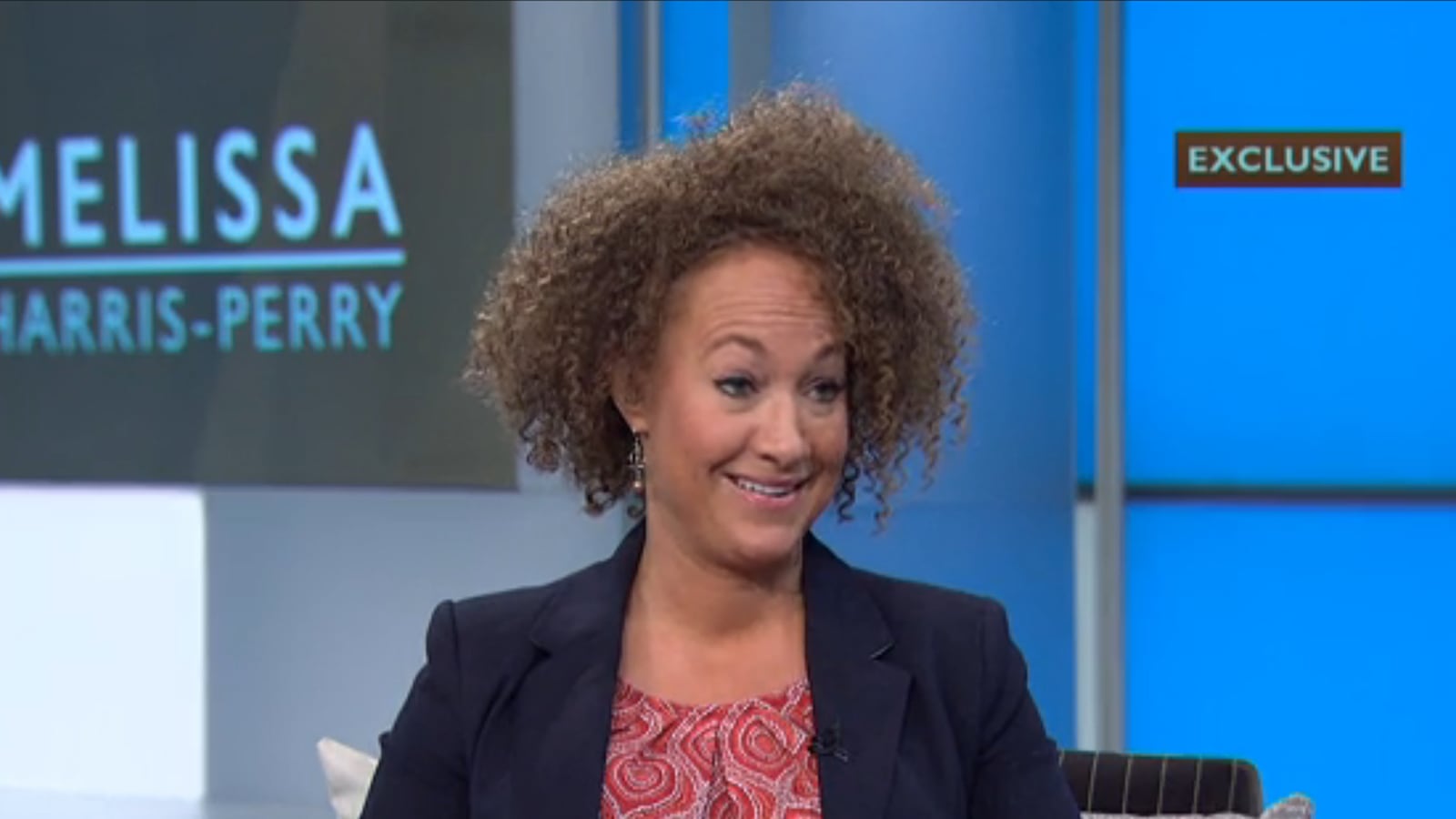There’s a line in The Jerk when Steve Martin’s character, Navin Johnson, the adopted, simpleton white son of black sharecropping parents, receives some sobering news. His mother tells him: “Navin, it’s your birthday, and it’s time you knew….You’re not our natural-born child.” And Navin replies:
“I’m not? You mean I’m gonna STAY this color?”
I’ve been unable to stop thinking about this scene lately, ever since Rachel Dolezal took racial immersion to a whole new level. Now we are in uncharted territory. Jokes can be a great stop-gap to address the complex realities of the world, but Dolezal’s actions have forced us to reexamine the racial identities that have defined our lives to a large degree. America has always joined black ancestry, identity, and culture as inseparable attributes, and Dolezal makes us wonder if a greater nuance or flexibility is needed in this discussion.
On the Today show Tuesday, and to MSNBC’s Melissa Harris-Perry, Dolezal in essence called herself black. I’m torn between responding with outrage toward her claim that she identifies as black and embracing her commitment to becoming a member of the black community and raising two black boys. The deaths of Michael Brown, Trayvon Martin, Tamir Rice, Jordan Davis, and numerous others has only increased the awareness of how difficult it can be to raise black children in America. Taking on that struggle while also disguising yourself as a black woman is bizarrely admirable. And it is not a situation that members of the black community, myself included, would have ever anticipated.
Dolezal’s children claim that she is culturally black, but acknowledge that genetically she is not. Dolezal is 37 years old and has lived as a black person for only a decade, so naturally I will question if she has the firsthand experience to claim a “blackness” equal to mine. Yet who am I to decide how much time anyone needs, or what experiences they must have, to personally identify with black culture? This is a question that has never presented itself, so having an answer in less than a week seems like asking a bit much of me.
But Dolezal forces us to examine the racial divisions at the foundation of America. Popular African-American singer Keri Hilson tweeted restrained support for Dolezal because her work for the NAACP—Dolezal’s activism on behalf of African Americans—is more important than her genealogy. Many of her nearly 4 million followers vehemently disapproved and let her know.
Similarly, comedian Dave Chappelle claimed that if the famous racial draft skit from Chappelle’s Show were done today, black Americans would (deridingly) probably draft Dolezal. Yet on a personal level he has opted to reserve judgment for what I believe is the same internal angst about what, if any, misdeed she has actually committed.
Meanwhile, countless other voices across the Internet have drawn parallels between Caitlyn Jenner and the transgender community and Dolezal’s racial transition. In equal measure people have used this comparison to ridicule Dolezal and support Jenner, support Dolezal and ridicule Jenner, or support both of them or ridicule the both of them.
As I discussed this situation with friends and family, the fact that stood out to me is the realization that America’s racial divisions are based around definitions that white Americans established hundreds of years ago and that have persisted until today. This was not a clash of two civilizations where each party determined its cultural differences.
The one-drop rule or hypo-descent—where any amount of African blood would make someone officially black in America—is a legacy of these established racial divisions, and as a result countless black families can reference ancestors who were able to “pass” as white. They would leave their black lives behind and start anew as white, in the hope of escaping oppression and obtaining privileges unavailable to them as black Americans. I’ve heard many stories in my family of this occurring, and I even had one relative whose deception was revealed, and he had to live out the rest of his life as a black person.
Witnessing the inverse—where a white person forgoes their white identity and willfully chooses to be black—is something that black Americans would never have anticipated. Now I wonder if Dolezal will return to living as a white person; yet everything she has said implies that she plans to continue living her life as black. She has no intention of becoming blonde again.
Historically, America’s cultural and racial classifications for what determines a black person focused entirely on appearance and ancestry, and had a total disregard for African culture, and as a result of this the black community has been forced to find a commonality between a large swath of people of various origins who live in one of the largest and most diverse nations in the world. As a result, the common linkage between us all has always been understanding and experiencing the suffering and struggle of living as a black person in America.
Black American culture has always encouraged excellence, success, and pride, while accepting the inevitable and unjust struggle, so it is logical to be taken aback when a blond-haired, blue-eyed American of mixed German and Czech descent claims that she identifies as black.
As I continue to think about Dolezal, I consistently think about the inadequacy of the arbitrary racial divisions that this nation created hundreds of years ago. Black identity and culture have always been interwoven and inseparable, and the only requirement for being able to claim both was the presence of any noticeable or discoverable amount of African ancestry.
The oppressive intent of the one-drop rule may be gone today, but we still determine our identity by it. I am strangely uncomfortable using the same rule now to completely deny access to a person with “no drop” of black lineage. To me, being black is both an apparent genetic history, but also a socio-cultural one built around experiences and values born of struggle.
Without knowing where we go from here, I still wonder whether it’s time to create a space where someone can properly adopt some part of black cultural identity without being subjected to a genetic “authenticity” test. Maybe we should begin examining the possibility of a “no drop” rule where people without any African ancestry can work toward culturally becoming black?
Honestly, who knows what the next step will be in this saga, but no matter what, this is a remarkable opportunity to reexamine the racial constructs that divide us and chart a path that could be more educational and welcoming.






